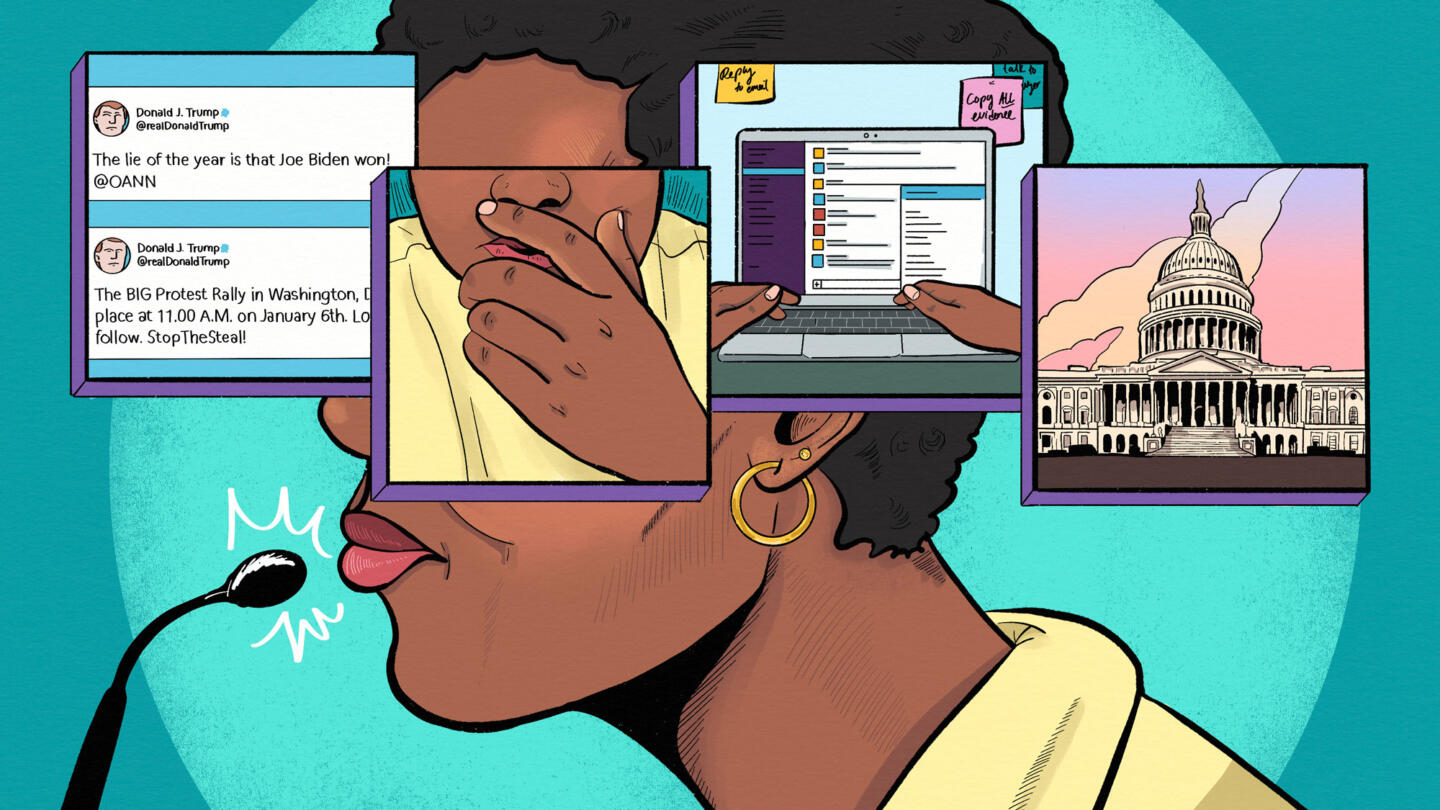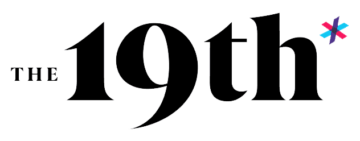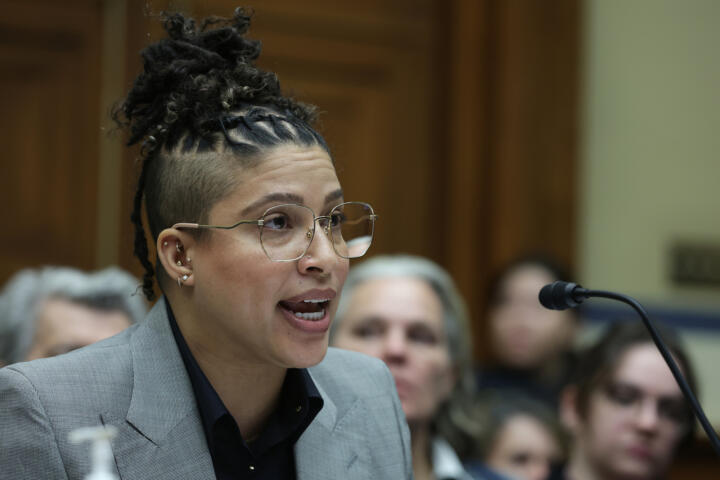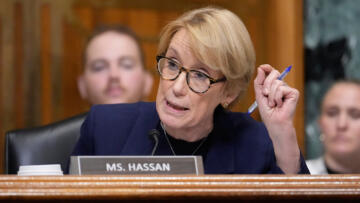The Markup, now a part of CalMatters, uses investigative reporting, data analysis, and software engineering to challenge technology to serve the public good. Sign up for Klaxon, a newsletter that delivers our stories and tools directly to your inbox.
This article was copublished with The 19th, a nonprofit newsroom covering gender, politics, and policy. Sign up for The 19th’s newsletter here.
The night of Jan. 5, 2021, Anika Collier Navaroli slept poorly. She had an uneasy feeling about what might happen in Washington, D.C., the next day.
Back then, Navaroli was a senior policy official at Twitter and the longest-tenured employee on the platform’s now-extinct safety policy team. For weeks, she and her team reviewed and cataloged a raft of troubling posts containing coded calls to arms, with some urging a “Civil War part two” and a “new American Revolution.”
The posts Navaroli reviewed followed a December call to action from then-president Donald Trump, who had tweeted a claim that the 2020 presidential election was rigged against him; he invited his supporters to the Capitol for a big protest on January 6—“Be there, will be wild!” he wrote. The post took off on Twitter: Users claimed to be “locked and loaded” for the protest; others demanded the hanging of Trump’s perceived enemies.
Navaroli, an attorney, had repeatedly reported the trend to leaders at the platform, warning the dangerous call-and-response could prompt actual offline violence. She later testified before Congress that she knew something “very, very bad was going to happen.”
“I was sitting there giving all these warnings,” she told The Markup last month. “It became clear to me that in many ways I was already a whistleblower.”
But despite her alerting Twitter’s higher-ups, and her insistence on adopting a rule banning posts like the ones promising a violent January 6, the company ignored her. So, the president’s tweets and those of his supporters not only remained, they multiplied.
“I was dumbstruck at how I was unable to do my job,” Navaroli later said in congressional testimony.
Two days after the deadly attack on the U.S. Capitol on January 6, Twitter suspended Trump’s account “due to the risk of further incitement to violence.”
More stressful days and sleepless nights followed for Navaroli. She continued to appeal for rules banning calls to violence, but Twitter still did not adopt a policy for coded incitement. And the platform’s leadership did not hold any meetings about how its decision-making might have influenced the events of January 6, Navaroli said.
Navaroli left Twitter in March 2021 and tried to put things behind her. She moved on to another job at a large tech company and then into academia. But back in the halls of the Capitol, lawmakers wanted to hear from her. In the summer of 2022, after receiving a U.S. House Committee subpoena, Navaroli testified as part of its investigation into the role of social media companies in January 6.
“From the very beginning, when you get labeled a truth-teller, people become really invested in making you out to be a liar.
But she hadn’t planned to go public about her experience at Twitter. Inviting that kind of professional risk—plus the threat of online attacks—was completely unappealing.
“I knew how dangerous it was,” she said. “I’m a Black, queer woman who’s worked on the internet. So I knew the sort of harassment and abuse that I would be signing myself up for.”
The committee allowed her and some other Twitter employees to testify anonymously, and gave Navaroli the pseudonym “J. Smith.” Audio excerpts of the committee’s interviews with her, later made public, used a digitally altered voice to obscure her identity.
A prominent news organization soon falsely reported J. Smith was a man. To Navaroli, it was an editorial choice that reflected uncomfortable, but familiar assumptions about the tech industry. (The error was never corrected.)
“The Associated Press thought I was a man,” she said. “I am not a man, I’m not straight, I am not White. … I think for so long we’ve kind of held that up and held that person up to be who powerful tech workers are and who powerful tech whistleblowers are.”
Going public, as Navaroli ultimately did in a second congressional testimony in September 2022 about the internal decision-making around January 6 at Twitter, has a crushing price for whistleblowers. Disclosing the secrets of powerful corporations, organizations, and agencies can threaten a whistleblower’s freedom, reputation, and career. Litigation from one’s employer or others named in the wrongdoing is also very possible, and costly.
“From the very beginning, when you get labeled a truth-teller, people become really invested in making you out to be a liar,” Navaroli said. As she’d expected, going public turned on a fire hose of racist and sexist messages, sent to her publicly and privately, including vivid death and rape threats. She regularly received images of nooses and messages promising harm to her and her family.
For these reasons, whistleblowers who go public represent a “significant minority,” said Jennifer Gibson, legal director of the Whistleblower Protection Program at The Signals Network, a nonprofit run by journalists and lawyers.
Even when they only report problems internally, whistleblowers can face retaliation at work, including threats, demotion and firing, increased scrutiny of their daily responsibilities, negative performance reviews, verbal harassment, intimidation, ostracism and isolation, and gaslighting. The mental and emotional tax on truth-telling can strain relationships and families.
However, Black women who report bad behavior at work like Navaroli—who is now a senior fellow at the Tow Center for Digital Journalism at Columbia University—not only jeopardize their professional careers, but often weather more intense backlash when they report wrongdoing, attorneys who work with whistleblowers said.
“We have a tendency to punish the messenger,” Gibson said. “When the messenger doesn’t look like us, that is even worse.”
“People Don’t Listen to Black Women Anyway”
In Gibson’s experience, women employees and employees of color are less likely to raise red flags than men or White employees. “One reason for that might be that if you take women, for example, they financially are less able to take the risk,” she said. “They may have children they’re caring for, they may have family they’re caring for, they may not be able to take the risk inherent in whistleblowing on a more sustained basis than perhaps a single male.”
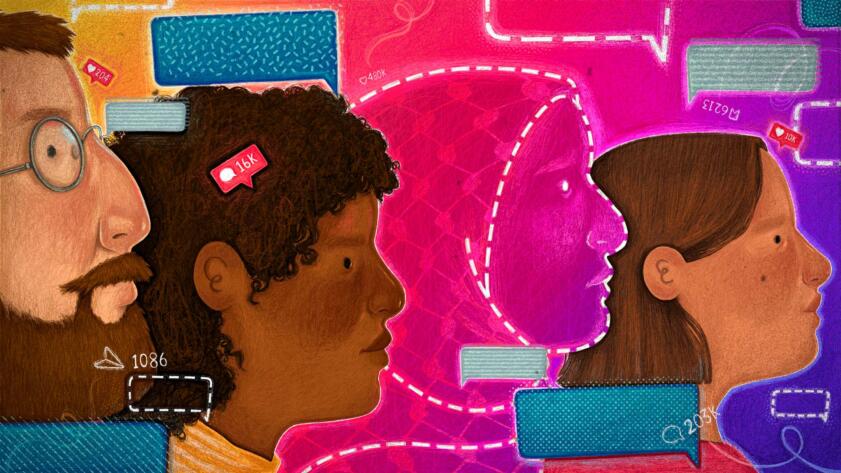
Automated Censorship
Demoted, Deleted, and Denied: There’s More Than Just Shadowbanning on Instagram
An investigation by The Markup found that the platform demoted images of the Israel–Hamas war, deleted captions without warning, and denied users the option to appeal
Black women, who represent a slim share of employees in the tech industry, may also face more significant employment hurdles than others, like discrimination at work.
“When you especially are talking about Black women whistleblowers, the biggest issue is that, first of all, people don’t listen to Black women anyway, right?” said Siri Nelson, the executive director of the National Whistleblower Center and adjunct professor at the Northeastern University School of Law. “Navigating that reality is something important to think about when you’re considering blowing the whistle.”
Black women who go public alleging wrongdoing at work also face unique social backlash, experts said. Public scrutiny can focus instead on the individual and their motivations “to the detriment of dealing with the problem,” Gibson said.
Other Black women in tech who have aired problems at their companies have experienced similar abuse.
“Being a Black woman, it was very different,” researcher and former Google employee Timnit Gebru told The Guardian in 2021. Gebru was ousted from the company in 2020 after she refused to retract research she co-authored detailing some of the risks of the language models that power Google’s search engine. A campaign of racist and sexist harassment followed. “There’s a specific strand of vitriol you deal with.”
After reporting workplace problems, Black women have even been physically harmed at work.
In early 2003, when she was a high-ranking civilian employee in the Army Corps of Engineers, Bunny Greenhouse objected to a $7 billion no-bid contract awarded to a subsidiary of Halliburton, the company then–vice president Dick Cheney once ran as chief executive. After lodging her concerns about the contract’s legality, the longtime civil servant was demoted. Greenhouse also lost her security clearance. And after filing a whistleblower suit against the agency, someone laid a trip wire down near her workspace. Greenhouse fell over it, injuring herself so badly she needed a knee replacement. She settled her lawsuit against the Department of Defense and the Army Corps of Engineers for $970,000 in 2011.
This treatment stands in contrast to the experiences of other whistleblowers, including other women.
Frances Haugen, who worked at Meta and later revealed that the platform knowingly used algorithms that boosted extremist views—was even invited to one of President Joe Biden’s State of the Union addresses. During his speech in 2022, Biden thanked Haugen for her “courage.” Vogue also wrote a profile of Haugen, celebrating her “poise and clarity.”
Since their disclosures, Haugen and other White women whistleblowers—like Chelsey Glasson, who worked at Google, and ex-Uber employee Susan Fowler—have been awarded book deals.
Read This Before You Blow the Whistle
Attorneys for whistleblowers strongly encourage those considering reporting wrongdoing at work to develop a plan. This can include reaching out to whistleblower protection organizations for guidance and securing a new job before making any disclosures.
“It sounds simple, but just sitting down and figuring out what it is you want to say and what it is … you want to achieve is quite important,” Gibson said.
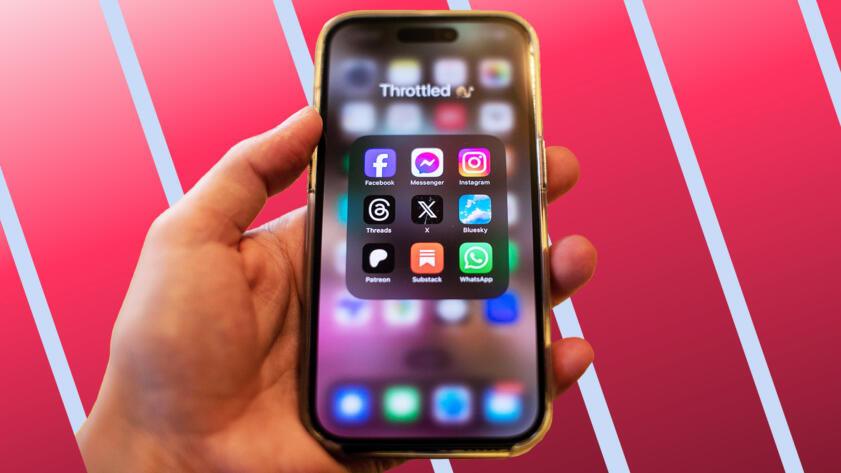
News
Twitter Is Throttling Patreon Links, Creators Say It Undermines Their Livelihood
Markup readers helped uncover the link delays, which also affect WhatsApp and Messenger
“Then, go find a support system, go find a network before you do anything,” she added. Get advice, whether it’s through an organization like The Signals Network, or a friend or lawyer. Understand what your risks are because the best way to mitigate them is to understand them.”
The Signals Network provides whistleblowers with legal and psychosocial help, plus assistance with digital and physical security. Other organizations, like the National Whistleblower Center, advocate for stronger laws for whistleblowers and educate those considering whistleblowing on the laws and practices that protect them.
One suggestion from Nelson at the National Whistleblower Center: Consider an anonymous reporting avenue, which can be safer than going through internal or public channels. “Sometimes people [are] so upset about what they’re seeing and they take action in a way that can actually cause them to experience harm,” she said.
“When you can report without revealing your identity, that’s the safest role to take,” she added.
It’s been almost two years since Navaroli, as J. Smith, took the risky step of revealing her identity and testifying about what happened when she warned Twitter about the coded calls to violence on the platform after the 2020 presidential election. Today, Twitter is named X, and users can report tweets for the same kinds of incitements she first flagged in late 2020.
“That is unfortunately the history of technology, Twitter, Black women, right?” Navaroli said. “Our contributions, our brains, our bodies, deteriorate under the weight of the work of doing this thing and creating safety that we don’t ever get the credit, acknowledgement, profit from.”
While she is confident she made the right choice, she still lives with the considerable cost—including a financial cost.
“I was doing just fine for myself,” she said. “And I gave all of that up. I gave all of that up to now work for a literal fraction of what I used to make. That’s a decision that I’m having to live with every day. Just because you blow the whistle doesn’t mean the bills stop.”
Interested in sharing information with reporters at The Markup? Reach us via Signal, the encrypted messaging application, at (917) 407-0635, or via any of these other options.
